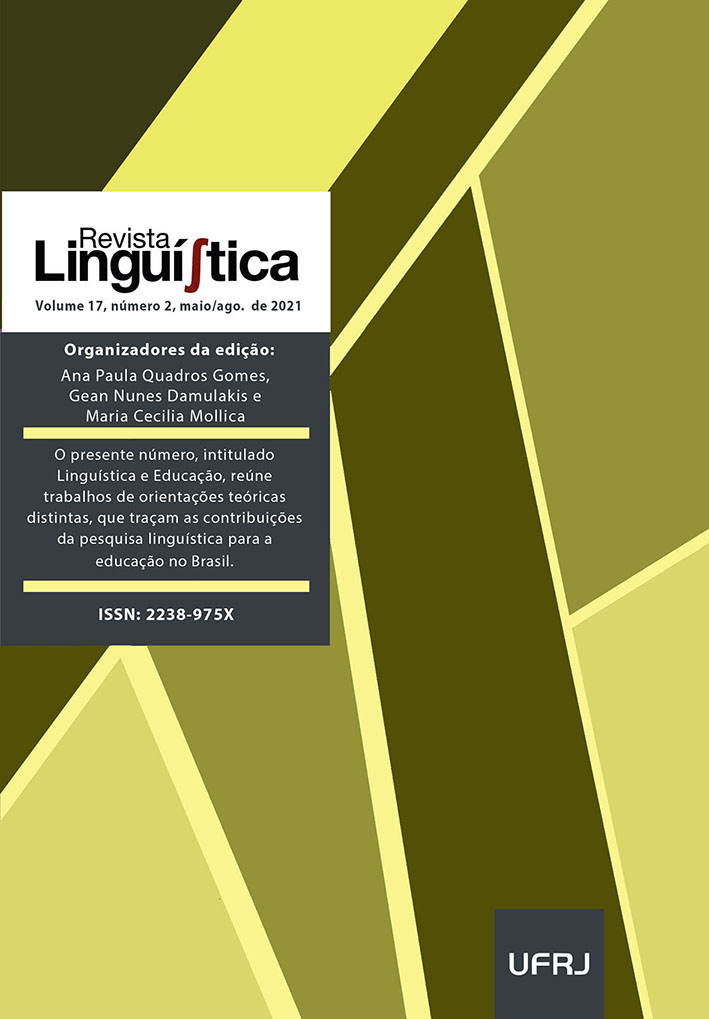Contribuições da Semântica Formal para a investigação de sintagmas nominais do português em sala de aula
DOI:
https://doi.org/10.31513/linguistica.2021.v17n2a42789Palavras-chave:
semântica, quantificação, plural, concordância.Resumo
Este artigo apresenta algumas contribuições da Semântica Formal para a investigação de sintagmas nominais em português em sala de aula na esteira de estudos dessa área voltados ao ensino, como, por exemplo, os trabalhos reunidos em Müller e Paraguassu Martins (2021). O texto apresenta uma proposta baseada na competência linguística interpretativa (cf. Chierchia, 2003) que tem como metodologia o emprego do raciocínio científico (cf. Honda; O’neil, 1993; Basso; Pires de Oliveira, 2012; Pires de Oliveira; Quarezemin, 2016) aplicado por meio de uma atividade interpretativa e pré-linguística com uma língua inventada. Essa atividade tem o objetivo de motivar a formulação da hipótese de que itens que se comportam como substantivos denotam conjuntos nas línguas naturais e que a forma dita singular é interpretada, na realidade como neutra para número. A partir dessa premissa, o texto elenca alguns comportamentos gramaticais dos sintagmas nominais do português brasileiro que podem ser analisados em sala de aula a partir dessa formulação, como usos argumentais de nomes nus, as funções semânticas e discursivas de determinantes e quantificadores e as variedades de concordância em sintagmas pluralizados.
Downloads
Downloads
Publicado
Edição
Seção
Licença
Autores que publicam na Revista Linguí∫tica concordam com os seguintes termos:
Os autores mantêm os direitos e cedem à revista o direito à primeira publicação, simultaneamente submetido a uma licença Creative Commons que permite o compartilhamento por terceiros com a devida menção ao autor e à primeira publicação pela Revista Linguí∫tica.
Os autores podem entrar em acordos contratuais adicionais e separados para a distribuição não exclusiva da versão publicada da obra (por exemplo, postá-la em um repositório institucional ou publicá-la em um livro), com o reconhecimento de sua publicação inicial na Revista Linguí∫tica.

A Revista Linguí∫tica é uma revista do Programa de Pós-Graduação em Linguística da UFRJ e se utiliza da Licença Creative Commons - Atribuição-NãoComercial 4.0 Internacional (CC-BY-NC)









